Recent Articles
Popular Makes
Body Types
2019 Kia Rio vs. 2019 Nissan Versa: Which Is Best?
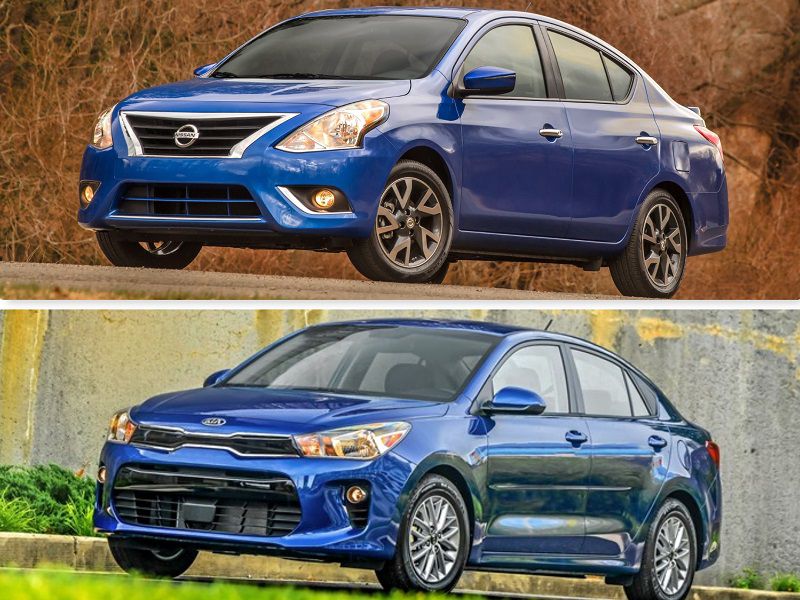
2019 Nissan Versa Kia Rio ・ Photo by Nissan / Kia
The Nissan Versa has been the best-selling subcompact car in the country for years, and that’s not likely to change anytime soon. After all, the Versa offers more high-tech content for 2019, including an optional NissanConnect infotainment system. More of last year’s available equipment is standard for the 2019 Versa as well.
Yet that doesn’t mean the Nissan is a better choice for all customers. Consider the 2019 Kia Rio. While the Rio sedan and five-door hatchback carry over unchanged this year, they were brand new for 2018. That’s when the Rio gained the kind of technologies that the Versa is only getting now. As for the cars’ specific benefits, we’ll tally those up in the pages that follow. Just remember that we follow Nissan’s lead when it comes to sales numbers, so we count the Versa sedan and Versa Note five-door hatchback as part of the same lineup.
Performance
The 2019 Kia Rio brings a power advantage to this category, winning thanks in part to its stronger engine. The Rio’s 1.6-liter four-cylinder unit delivers 130 horsepower and 119 pound-feet of torque, which may not seem like much. But despite having the same size engine, the 2019 Nissan Versa has some of the lowest output ratings in the class. It’s limited to 109 horsepower and 107 pound-feet of torque.
The Rio also offers a shiftable six-speed automatic in both body styles. The Versa sedan, in line with its value positioning, is configured with a five-speed manual as standard equipment. The Versa Note relies on a continuously variable automatic transmission (CVT) that’s optional for the four-door Versa. The Rio has bigger brakes, too, and it’s available with rear disc brakes that the Nissan lacks.
Kia Rio
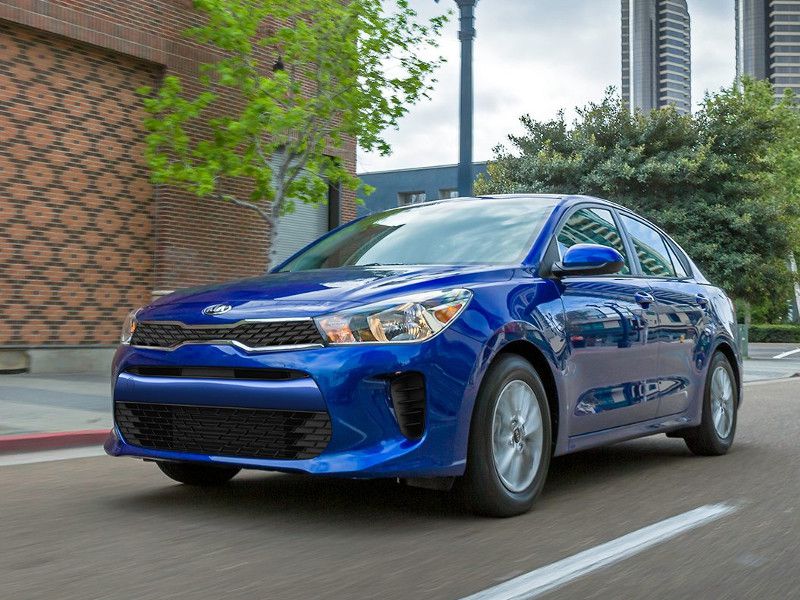
Photo by Kia
Fuel Efficiency
Although they don’t do much for the overall driving experience, CVTs can be better for fuel efficiency than other transmission types. The 2019 Nissan Versa, for example, earns EPA ratings of 31 mpg in the city, 39 mpg on the highway, and 34 mpg combined with a CVT. This compares to fuel-economy grades of 28 mpg city/37 mpg highway/32 mpg combined when the 2019 Kia Rio is equipped with its more traditional automatic transmission. The bottom line includes a noticeable 6 percent advantage for the Versa in combined driving.
The EPA ratings for the Versa sedan with the manual transmission are a bit lower, at 27 mpg city/36 mpg highway/30 mpg combined. But the Versa still gets the victory in this category, due to its higher peak numbers.
Nissan Versa
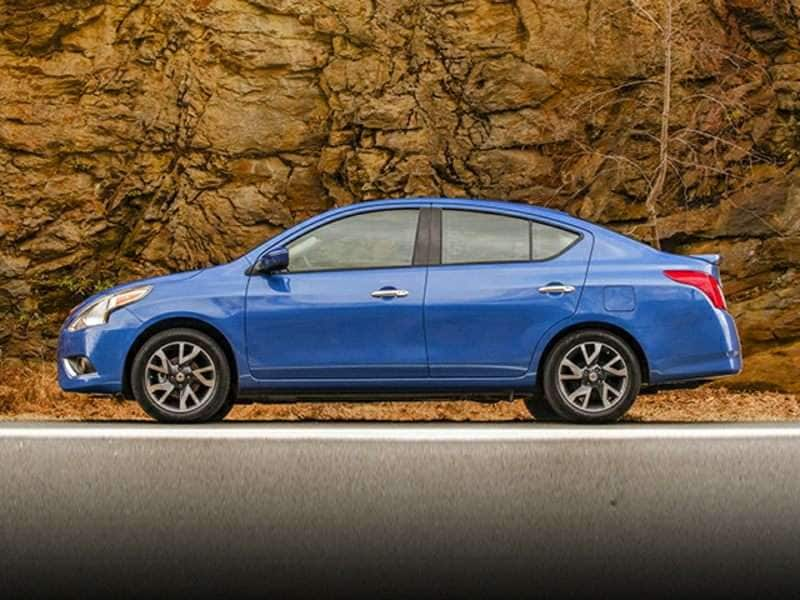
Photo by Nissan
Safety Ratings and Technology
The 2019 Kia Rio is the clear winner in the safety department. True, both the Rio and the 2019 Nissan Versa have a standard backup camera. The Rio, however, ups the ante with an optional forward collision-avoidance system. The technology can first warn you if the Rio is approaching a slowed or stopped car too quickly. Then, if you don’t take action, it can automatically apply the brakes in some situations. The same setup earned a “Superior” grade in IIHS testing and helped the Rio sedan earn the full Top Safety Pick+ honor last year. Meanwhile, the Versa sedan flunked the frontal small-overlap crash test.
Note that neither hatchback was fully tested by the IIHS for 2018, and the 2019 ratings were not available when this story was published.
Kia Rio
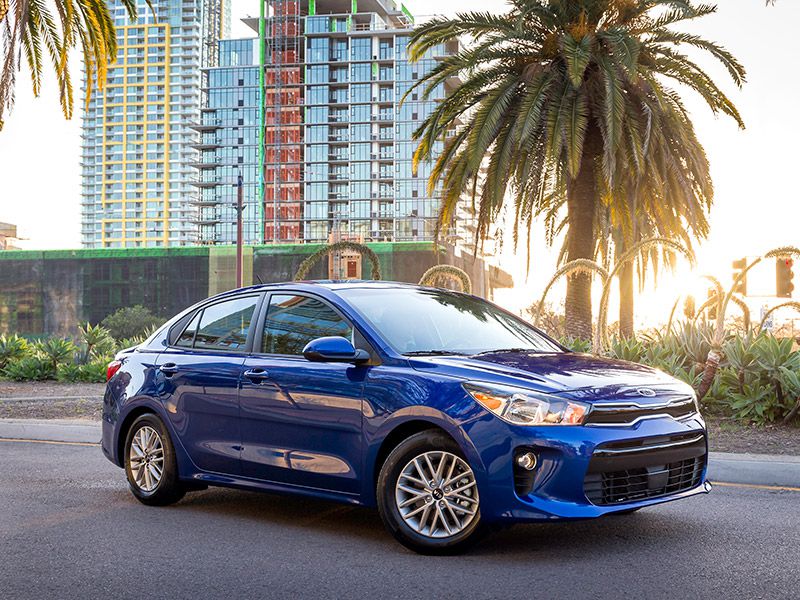
Photo by Kia
Cabin and Cargo Space
Cabin space is at a premium for mainstream small cars, so we took the measure of the 2019 Kia Rio and 2019 Nissan Versa in key areas. And the tale of the tape showed a triumph for the Versa. The Rio does provide a bit more front-row headroom for the hatchback, and a little extra front-seat legroom and back-seat headroom with its sedan.
The Versa, though, more than makes up for this with extra space in most other dimensions. As a highlight, the Versa Note, with 38.3 cubic feet of total cargo space, has 17 percent more than the five-door Rio. Nissan’s sedan and hatchback also serve up significant advantages for rear-seat legroom. To be specific, the Nissan hatch and sedan have 14 and 10 percent more space in that area than their Kia counterparts.
Nisan Versa
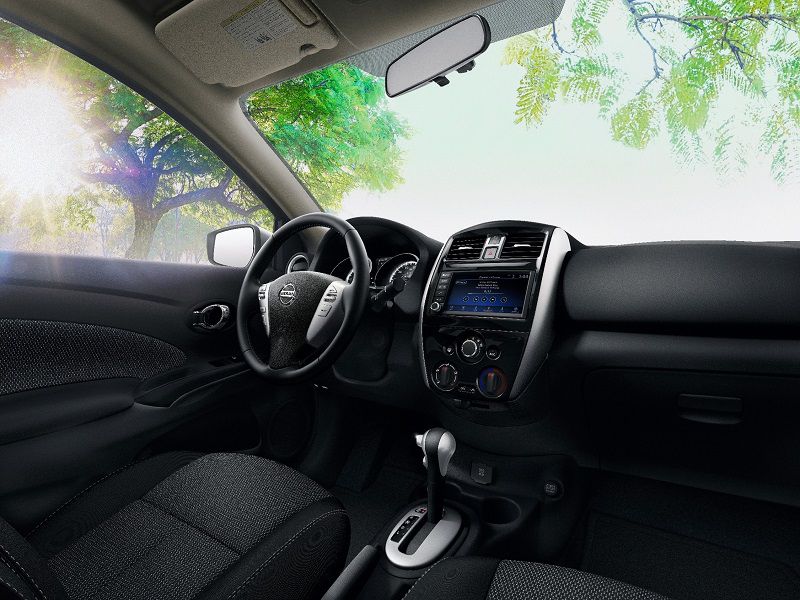
Photo by Nissan
Infotainment Technology
Both of these cars are available with Android Auto and Apple CarPlay, yet neither is exactly well-stocked with infotainment technology. The 2019 Kia Rio leads off with a 5-inch touchscreen, Bluetooth for hands-free calling and audio streaming, an AM/FM stereo, satellite radio, USB/auxiliary connections, and four audio speakers. The 2019 Nissan Versa upsizes to a standard 7-inch touchscreen and counts satellite radio as an option, but it otherwise matches the Rio’s setup.
In terms of infotainment options, the Rio features a 7-inch touchscreen, two more tweeter speakers mounted in the front-door pillars, and Kia’s UVO telematics system. That’s the main reason the Rio wins in this section. With the UVO technology, you gain a free five-year subscription to Kia services like automatic crash notification, roadside assistance, vehicle diagnostics, and teen-driver functions.
Kia Rio
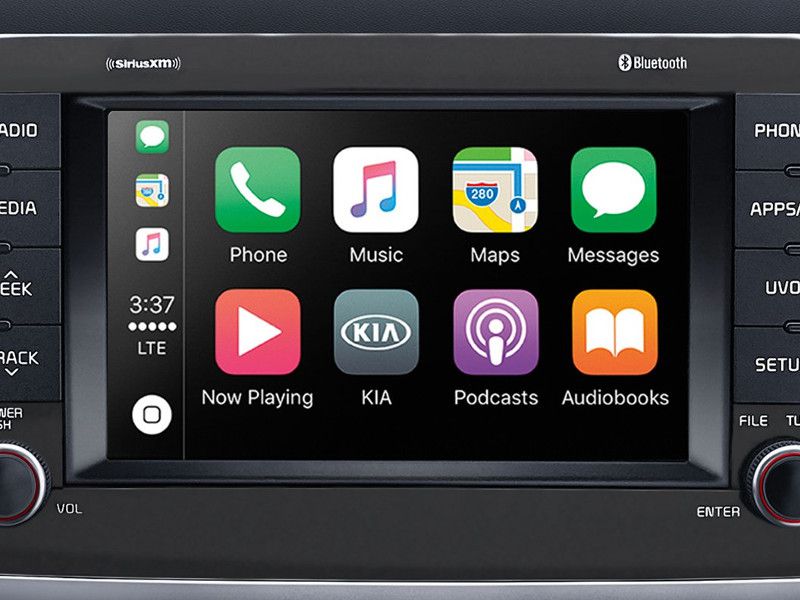
Photo by Kia
Exterior Design
There’s no doubt that the 2019 Nissan Versa Note is a sharp-looking little hatchback, with funky wheel designs, an eye-catching grille, and an aggressive profile. The thing is, the Versa sedan has its own unique appearance, with awkward exterior styling and top-heavy proportions. With the 2019 Kia Rio, both body styles wear pretty much the same athletic designs, including a detailed front-end appearance with dramatically sculpted lower intakes.
Kia also raises the bar for equipment with features you won’t find from Nissan. For instance, the Rio comes with standard heated exterior mirrors. Those aren’t available at all for the Versa. In the range-topping Rio trim, Kia can swap out the standard halogen headlamps for a full LED setup that’s complemented by LED positioning lights. The result is another Kia victory, backed by both style and substance.
Kia Rio
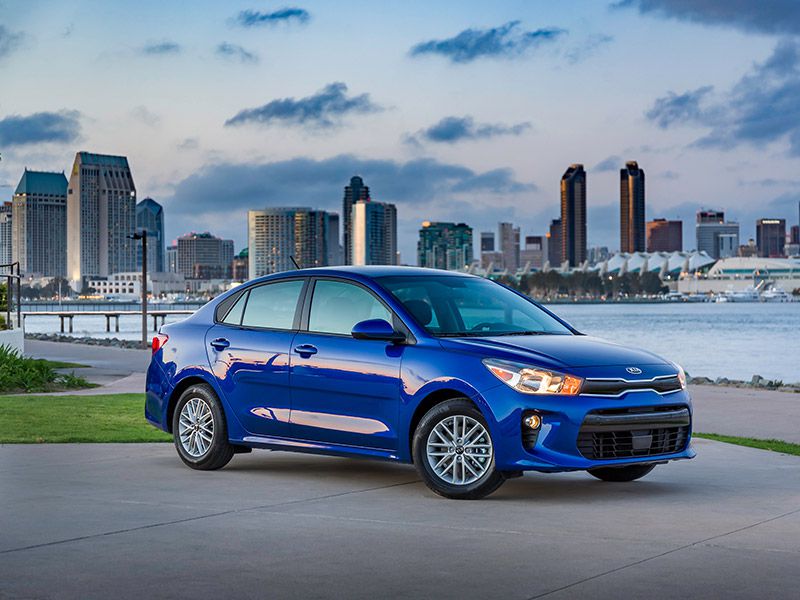
Photo by Kia
Interior Design and Content
The 2019 Kia Rio and 2019 Nissan Versa each have surprisingly attractive cabins, albeit with plenty of hard plastic surfaces. Nonetheless, the sculpting for the cars’ dashboards offers some interesting details. The Rio emphasizes its horizontal design theme with a freestanding rectangular infotainment screen, and the Versa sports a prominent center stack that’s flanked by curved vertical trim.
The two automakers take different approaches to standard equipment, so that the entry-level Versa sedan lacks power accessories. But at the other end of the spectrum, only the Versa provides a leather-wrapped steering wheel. Both cars check the boxes for standard air conditioning, a six-way manually adjustable driver’s seat, and a tilt-adjustable steering wheel, while both can be ordered with premium instrumentation. We’ll call this one for the Rio based on its higher level of standard interior content.
Kia Rio
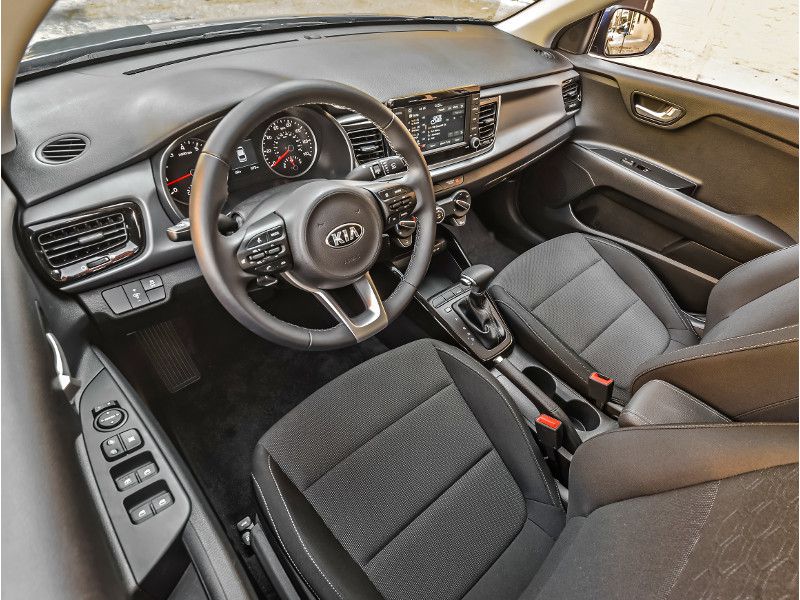
Photo by Kia
Pricing and Value
The benefit from the Versa’s stripped-down cabin becomes obvious when you compare the cars’ MSRPs. Boasting a sticker price that starts at $12,360, the 2019 Nissan Versa sedan is one of the least expensive new cars in the country. Further, even if it doesn’t come with power windows or door locks, you do get standard air conditioning, a 7-inch audio touchscreen, and Bluetooth. That’s an entirely livable package if you’re on a tight budget.
In comparison, the lowest-cost 2019 Kia Rio opens at $15,300. This gives the Rio sedan a starting price that’s nearly $3,000 higher than for the Versa, and makes the Kia almost 24 percent more expensive. It also makes this category a win for the Versa.
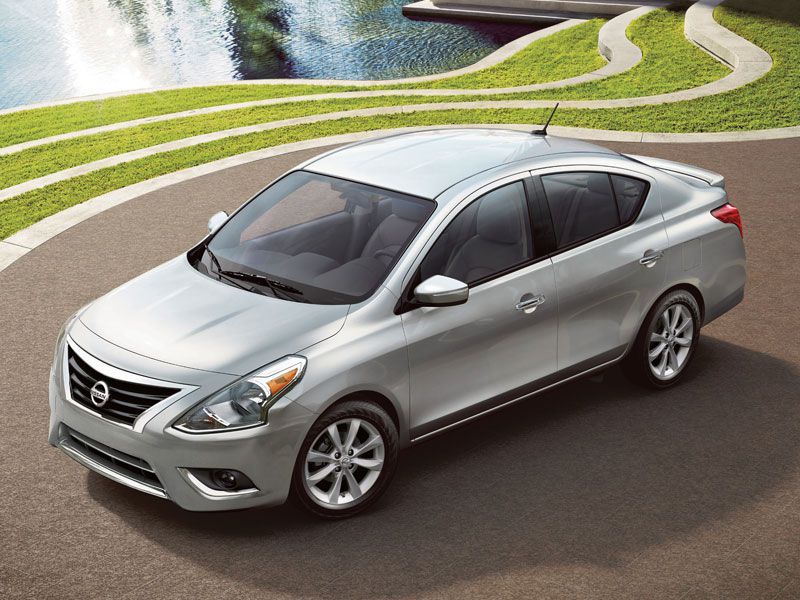
Photo by Nissan
Which is best for you?
The 2019 Nissan Versa put up a tough fight in today’s competition, taking home important victories for fuel economy, cabin space, and value. Indeed, with its sub-$13,000 price tag, the Versa is a fine choice for customers who need basic transportation and a few key modern technologies.
But the 2019 Kia Rio also earns praise in important areas for customers. It offers better performance than the Versa and — with full LED headlights — a snazzier exterior design. All told, the Rio led the way in five of eight specific categories, and that includes crucial advantages for safety technology and crash-test ratings. With those factors in mind, the Rio is our overall winner for customers.
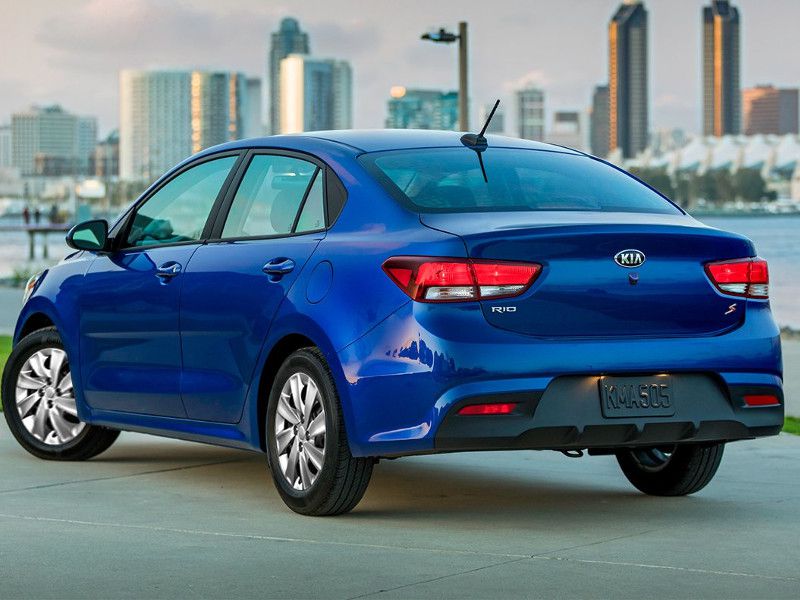
Photo by Kia